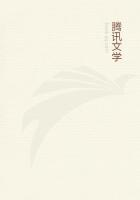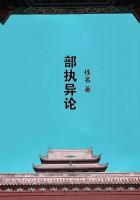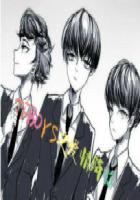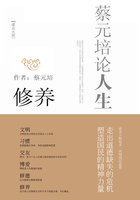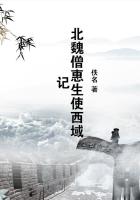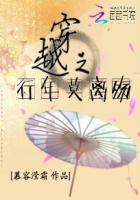As a proof that we were in Italy we happened while waiting for table d'hote to be leaning over the balcony that ran round the house and passed our bedroom door, when a man and a girl came out with two large pails in their hands, and we watched them proceed to a cart with a barrel in it, which was in a corner of the yard; we had been wondering what was in the barrel and were glad to see them commence tapping it, when lo! out spouted the blood-red wine with which they actually half filled their pails before they left the spot. This was as Italy should be. After dinner, too, as we stroll in the showy Italian sort of piazza near the inn, the florid music which fills the whole square, accompanied by a female voice of some pretensions, again thoroughly Italianises the scene, and when she struck up our English national anthem (with such a bass accompaniment!) nothing could be imagined more incongruous.
Sleeping at La Tour at the hotel kept by M. Gai (which is very good, clean, and cheap), we left next morning, i.e. Tuesday, June 16, at four by diligence for Pinerolo, thence by rail to Turin where we spent the day. It was wet and we saw no vestiges of the Alps.
Turin is a very handsome city, very regularly built, the streets running nearly all parallel to and at right angles with each other;there are no suburbs, and the consequence is that at the end of every street one sees the country; the Alps surround the city like a horseshoe, and hence many of the streets seem actually walled in with a snowy mountain. Nowhere are the Alps seen to greater advantage than from Turin. I speak from the experience, not of the journey I am describing, but of a previous one. From the Superga the view is magnificent, but from the hospital for soldiers just above the Po on the eastern side of the city the view is very similar, and the city seen to greater advantage. The Po is a fine river, but very muddy, not like the Ticino which has the advantage of getting washed in the Lago Maggiore. On the whole Turin is well worth seeing. Leaving it, however, on Wednesday morning we arrived at Arona about half-past eleven: the country between the two places is flat, but rich and well cultivated: much rice is grown, and in consequence the whole country easily capable of being laid under water, a thing which I should imagine the Piedmontese would not be slow to avail themselves of; we ought to have had the Alps as a background to the view, but they were still veiled. It was here that a countryman, seeing me with one or two funny little pipes which I had bought in Turin, asked me if I was a fabricante di pipi--a pipe-maker.
By the time that we were at Arona the sun had appeared, and the clouds were gone; here, too, we determined to halt for half a day, neither of us being quite the thing, so after a visit to the colossal statue of San Carlo, which is very fine and imposing, we laid ourselves down under the shade of some chestnut trees above the lake, and enjoyed the extreme beauty of everything around us, until we fell fast asleep, and yet even in sleep we seemed to retain a consciousness of the unsurpassable beauty of the scene. After dinner (we were stopping at the Hotel de la Poste, a very nice inn indeed) we took a boat and went across the lake to Angera, a little town just opposite; it was in the Austrian territory, but they made no delay about admitting us; the reason of our excursion was, that we might go and explore the old castle there, which is seated on an inconsiderable eminence above the lake. It affords an excellent example of Italian domestic Gothic of the Middle Ages; San Carlo was born and resided here, and, indeed, if saintliness were to depend upon beauty of natural scenery, no wonder at his having been a saint.
The castle is only tenanted by an old man who keeps the place; we found him cooking his supper over a small crackling fire of sticks, which he had lighted in the main hall; his feeble old voice chirps about San Carlo this and San Carlo that as we go from room to room.
We have no carpets here--plain honest brick floors--the chairs, indeed, have once been covered with velvet, but they are now so worn that one can scarcely detect that they have been so, the tables warped and worm-eaten, the few, that is, that remained there, the shutters cracked and dry with the sun and summer of so many hundred years--no Renaissance work here, yet for all that there was something about it which made it to me the only really pleasurable nobleman's mansion that I have ever been over; the view from the top is superb, and then the row home to Arona, the twinkling lights softly gleaming in the lake, the bells jangling from the tall and gaudy campaniles, the stillness of the summer night--so warm and yet so refreshing on the water; hush, there are some people singing--how sweetly their voices are borne to us upon the slight breath of wind that alone is stirring; oh, it is a cruel thing to think of war in connection with such a spot as this, and yet from this very Angera to this very Arona it is that the Austrians have been crossing to commence their attack on Sardinia. I fear these next summer nights will not be broken with the voice of much singing and that we shall have to hush for the roaring of cannon.
I never knew before how melodiously frogs can croak--there is a sweet guttural about some of these that I never heard in England:

